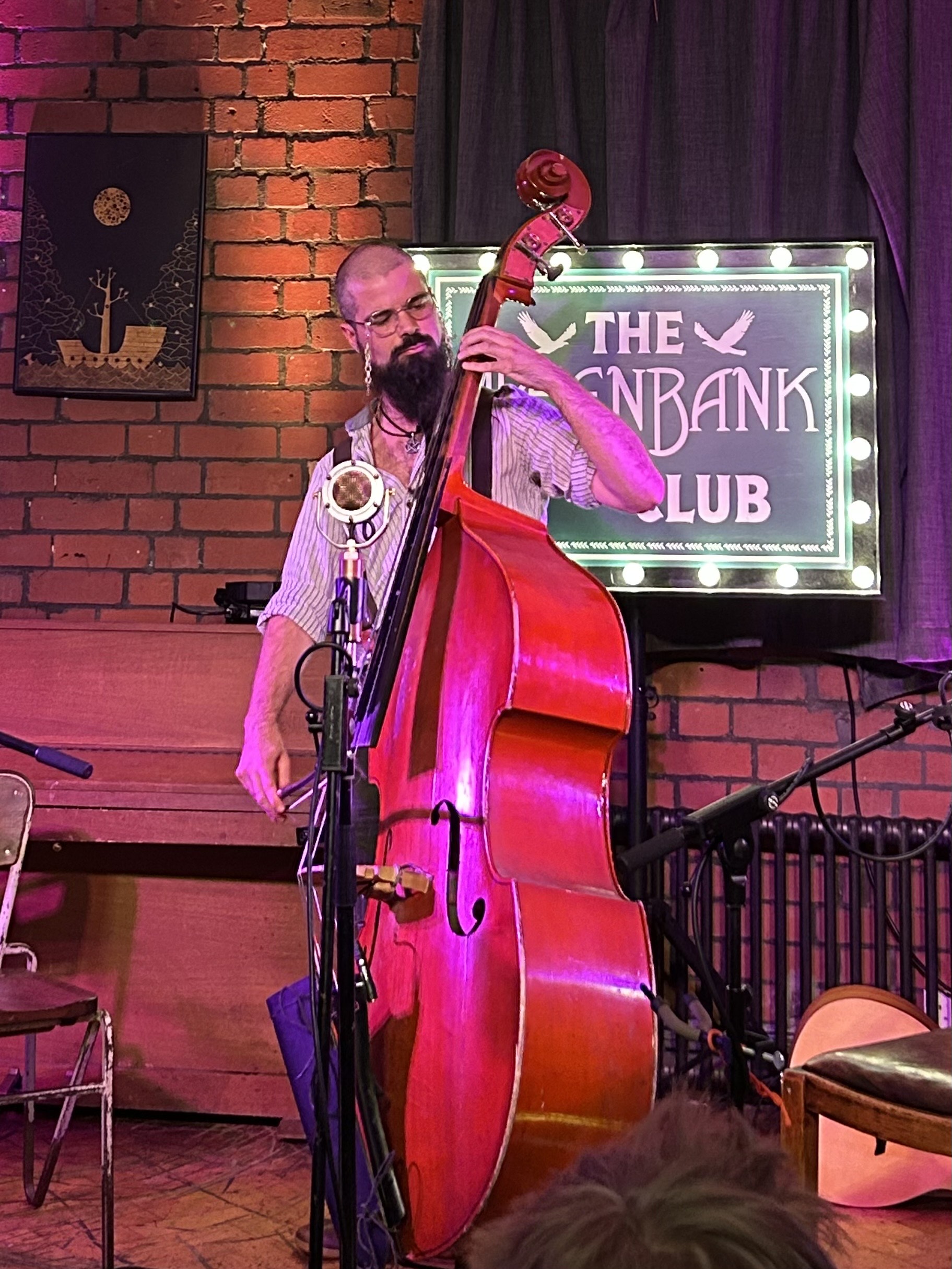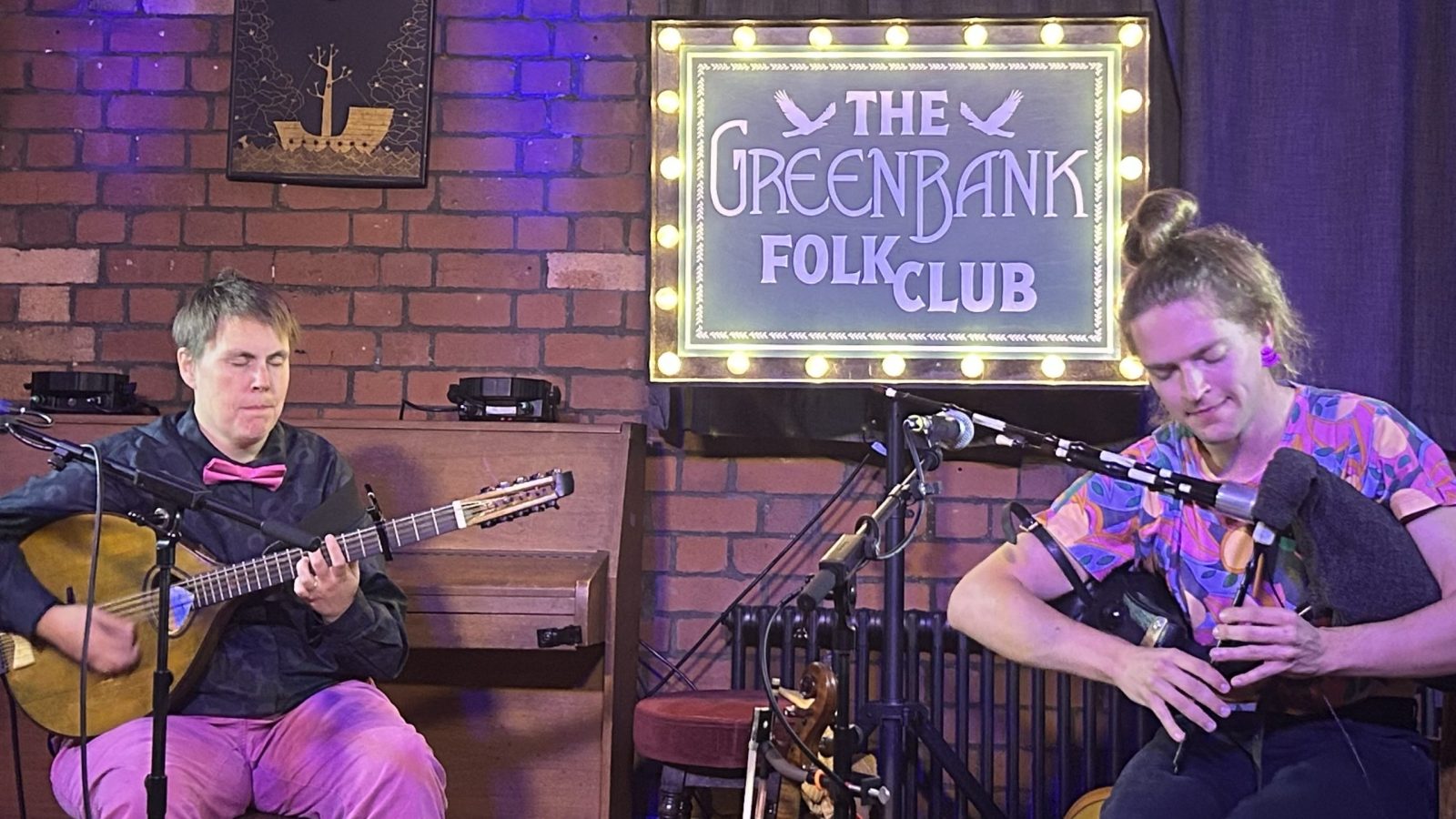Music / Reviews
Review: Malin Lewis, Greenbank Folk Club – ‘A gorgeous patchwork of European folk’
The first chill of autumn is in the air and the Greenbank Folk Club is back after its summer hiatus.
Huddled into the room above the Greenbank, a sellout crowd sits knee to knee and settles in for a glowing evening of music and a host of weird and wonderful instruments.
The first floor spot before the main event is from Dominic O’Sullivan on various whistles and clarinet.
is needed now More than ever
His prodigious musicianship sets the tone for an evening of supreme talent to come.
He draws shapes in the air with his instrument and plays with such joyful urgency that he seems about to take off out of his chair at times.
Joined on stage variously by guitar and viola, they ground him, lending a warm sturdiness to his flighty flourishes.
Double bassist and singer Isaac Ellis’ floor spot is a delight.
His repartee is as entertaining as his repertoire and he brings emotional nuance to a range of topics; from his version of The Testimony of Patience Kershaw, a historical epic based on the real, heartbreaking testimony of a young girl who worked in a mine in 1842, to a song about the antics of three cats that he counts as his friends.
His final and most moving piece is a protest song about a political party called the Party of Women, standing on a platform of transphobia in Bristol at the last election.

Isaac Ellis’ floor spot was a delight
His wit only thinly veils the pulse of anguish in such lines as, “We’ve lost too many friends to be civil”.
This is the only song where he uses his bow: it feels elegiac and brings a deep sonorous gravitas, especially in contrast to the impish levity of the earlier pizzicato. But the weight of the topic, and the hint of grief, is balanced by the warmth and humour of his delivery.
His spot comes to a beautiful end with the audience joining in the refrain, “No more transphobes in our city”. Amen to that.
Next, the headline act – Malin Lewis from the Isle of Skye who plays modified small pipes with twice as many notes as the traditional nine-noted small pipes. The extended range means the repertoire has the potential to grow, but it needs to be developed.
Lewis talks about collaborating and conversing with the instrument itself to “find out where it wants to go” and create a new repertoire.
There’s a palpable excitement about not being bound to just those nine notes and being free to explore and experiment with the identity of the instrument; to create anew, while weaving in the elements of its tradition that still work.
It feels like a wonderful metaphor for navigating and constructing queerness: the perfect medium for Lewis to express and celebrate their trans identity.
Their companion on stage tonight is Marit Fält who plays the låtmandola – like a mandolin with some extra stuff, we’re told.
It looks like a medieval instrument, but the sounds Fält produces are fresh and modern while tapping into a deep and wide reservoir of folk tradition.
It’s a versatile instrument in her hands, at once bassy and percussive but capable of intricate, delicate melody too.
Together, Fält and Lewis weave a gorgeous patchwork of European folk, borrowing and adapting music from Estonia to Northern Spain, with a large dose of Scandinavian folk inspired by Lewis’ travels and Fält’s heritage.
The sound is rich and deep and, like the best of new folk music, feels at once groundbreaking and ancient, as though it is giving voice to something buried deep in our psyches.
During a solo improvisation towards the end Lewis’ instrument knows exactly where it wants to go and seems almost to crackle with electric potential as they calmly guide it to resolution.
It is fascinating to watch this collaboration unfurl and witness the blooming of a new repertoire.
Malin Lewis’ debut album, Halocline, is out now
All photos: Lucy Langley-Palmer
Read next:
 Our newsletters emailed directly to you
Our newsletters emailed directly to you




















